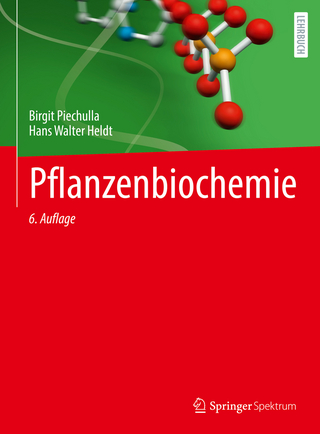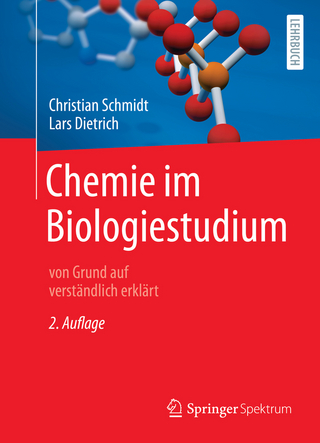With a new and updated suite of online resources, including hundreds of end-of-chapter problems with answer-specific feedback, activities for in-class and out-of-class, and an emphasis on visualization, Biochemistry with Achieve sets a new standard for biochemistry programs!
New in this edition:
- Chapter content is organized around the themes of evolutionary perspective, clinical applications and physiological relevance, biotechnological and industrial applications and the importance of time and time scales. This ensures relevance and focus for today’s biochemistry students.
- New content keeps students learning from the latest material with coverage of molecular recognition, drug discoveries, metabolism and cancer and anticoagulant medicines.
- Problem-solving techniques and practice throughout the text and online ensures that students have ample opportunities to hone their knowledge through practice. All end-of-chapter problems are online so that they are able to be assigned, they include answer-specific feedback, hints and fully worked solutions.
Jeremy M. Berg received his B.S. and M.S. degrees in Chemistry from Stanford University (where he did research with Keith Hodgson and Lubert Stryer) and his PhD in Chemistry from Harvard with Richard Holm. He then completed a postdoctoral fellowship with Carl Pabo in Biophysics at Johns Hopkins University School of Medicine. He was an Assistant Professor in the Department of Chemistry at Johns Hopkins from 1986 to 1990. He then moved to Johns Hopkins University School of Medicine as Professor and Director of the Department of Biophysics and Biophysical Chemistry, where he remained until 2003. He then became Director of the National Institute of General Medical Sciences at the National Institutes of Health. In 2011, he moved to the University of Pittsburgh, where he is now a Professor of Computational and Systems Biology and Pittsburgh Foundation Chair and Director of the Institute for Personalized Medicine. He served as President of the American Society for Biochemistry and Molecular Biology from 2011 to 2013 and as Editor-in-Chief for Science magazine and the Science family of journals from 2016 to 2019. Dr. Berg has received numerous awards for his research, teaching, and public service. He is an elected member of the National Academy of Medicine and the American Academy of Arts and Sciences. He is coauthor, with Stephen J. Lippard, of the textbook Principles of Bioinorganic Chemistry. He greatly enjoys sharing his life with his wife, three grown children, and grandchildren.
Gregory J. Gatto, Jr., received his A.B. degree in Chemistry from Princeton University, where he worked with Martin F. Semmelhack and was awarded the Everett S. Wallis Prize in Organic Chemistry. In 2003, he received his MD and PhD degrees from the Johns Hopkins University School of Medicine, where he studied the structural biology of peroxisomal targeting signal recognition with Dr Berg and received the Michael A. Shanoff Young Investigator Research Award. He completed a postdoctoral fellowship in 2006 with Christopher T. Walsh at Harvard Medical School, where he studied the biosynthesis of the macrolide immunosuppressants. Dr Gatto is currently a Scientific Director in the Novel Human Genetics Research Unit at GlaxoSmithKline. While he enjoys losing at board games, attempting but not completing crossword puzzles, and watching baseball games at every available opportunity, he treasures most of the time he spends with his wife Megan and sons Timothy and Mark.
Justin K. Hines is a Professor of Chemistry at Lafayette College, where he teaches general chemistry and biochemistry courses and conducts education and NIH-funded laboratory research on protein misfolding with undergraduates. He received both his B.S. and PhD in Biochemistry from Iowa State University, where he studied the structure and regulation of the enzymes of central metabolism with Richard B. Honzatko and Herbert J. Fromm. He then completed a postdoctoral fellowship with Elizabeth A. Craig in Biochemistry at the University of Wisconsin–Madison. Professor Hines has won numerous awards for teaching and research, including being named a Cottrell Scholar by the Research Corporation for Science Advancement and a Henry-Dreyfus Teacher-Scholar by the Camille and Henry Dreyfus Foundation. He is also the author of the case-studies series for Macmillan’s three biochemistry textbooks. He enjoys running, hiking, games of any kind, and spending time with his wife and children.
John L. Tymoczko was Towsley Professor of Biology Emeritus at Carleton College, where he taught from 1976 until his death in 2019. He taught a variety of courses, including Biochemistry, Biochemistry Laboratory, Oncogenes and the Molecular Biology of Cancer, and Exercise Biochemistry, and cotaught an introductory course, Energy Flow in Biological Systems. Professor Tymoczko received his B.A. from the University of Chicago in 1970 and his PhD in Biochemistry from the University of Chicago with Shutsung Liao at the Ben May Institute for Cancer Research. He then had a postdoctoral position with Hewson Swift of the Department of Biology at the University of Chicago. The focus of his research was on steroid receptors, ribonucleoprotein particles, and proteolytic processing enzymes.
Lubert Stryer is Winzer Professor of Cell Biology, Emeritus, in the School of Medicine and Professor of Neurobiology, Emeritus, at Stanford University, where he has been on the faculty since 1976. He received his MD from Harvard Medical School. Professor Stryer has received many awards for his research on the interplay of light and life, including the Eli Lilly Award for Fundamental Research in Biological Chemistry, the Distinguished Inventors Award of the Intellectual Property Owners’ Association, and election to the National Academy of Sciences and the American Philosophical Society. He was awarded the National Medal of Science in 2006. The publication of his first edition of Biochemistry in 1975 transformed the teaching of biochemistry. Textbook New Edition By: Jeremy M Berg(Author), Gregory J Gatto, Jr.(Author), Justin K Hines(Author), John L Tymoczko(Author), Lubert Stryer(Author) 1113 pages, colour & b/w photos, colour & b/w illustrations, colour tables Publisher: W.H. Freeman & Co. Ltd Current promotions Collins Bird GuideEcho Meter Touch 2British Wildlife Magazine
1 Biochemistry in Space and Time
2 Protein Composition and Structure
3 Binding and Molecular Recognition
4 Protein Methods
5 Enzymes: Core Concepts and Kinetics
6 Enzyme Catalytic Strategies
7 Enzyme Regulatory Strategies
8 DNA, RNA, and the Flow of Genetic Information
9 Nucleic Acid Methods
10 Exploring Evolution and Bioinformatics
11 Carbohydrates and Glycoproteins
12 Lipids and Biological Membranes
13 Membrane Channels and Pumps
14 Signal-Transduction Pathways
15 Metabolism: Basic Concepts and Themes
16 Glycolysis and Gluconeogenesis
17 Pyruvate Dehydrogenase and the Citric Acid Cycle
18 Oxidative Phosphorylation
19 Phototrophy and the Light Reactions of Photosynthesis
20 The Calvin–Benson Cycle and the Pentose Phosphate Pathway
21 Glycogen Metabolism
22 Fatty Acid and Triacylglycerol Metabolism
23 Protein Turnover and Amino Acid Catabolism
24 Integration of Energy Metabolism
25 Biosynthesis of Amino Acids
26 Nucleotide Biosynthesis
27 Biosynthesis of Membrane Lipids and Steroids
28 DNA Replication, Repair, and Recombination
29 RNA Functions, Biosynthesis, and Processing
30 Protein Biosynthesis
31 Control of Gene Expression
32 Principles of Drug Discovery and Development
| Erscheinungsdatum | 15.03.2023 |
|---|---|
| Sprache | englisch |
| Maße | 216 x 277 mm |
| Gewicht | 1000 g |
| Einbandart | kartoniert |
| Themenwelt | Naturwissenschaften ► Biologie ► Biochemie |
| ISBN-10 | 1-319-49850-7 / 1319498507 |
| ISBN-13 | 978-1-319-49850-4 / 9781319498504 |
| Zustand | Neuware |
| Haben Sie eine Frage zum Produkt? |
aus dem Bereich




